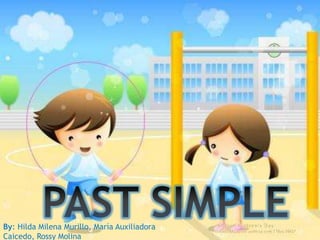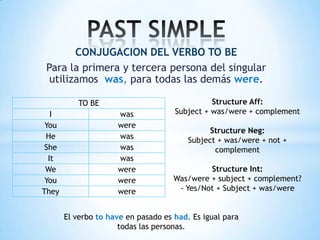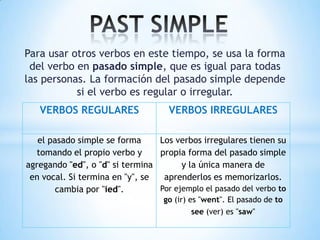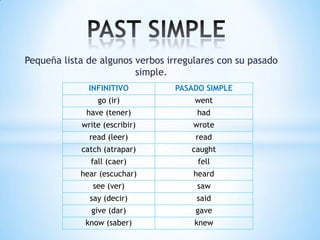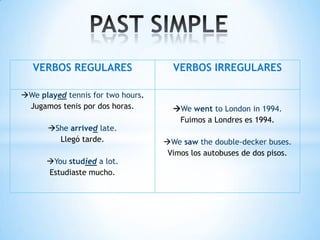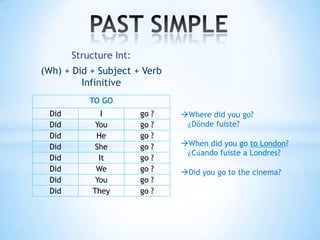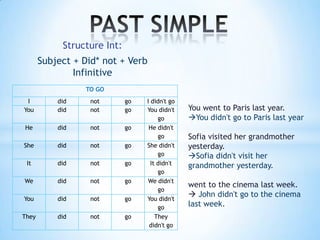The document discusses the simple past tense in English. It is used to talk about actions that started and finished in the past. Regular verbs form the simple past by adding "-ed" to the base form, while irregular verbs have their own unique past forms which must be memorized. Examples of common irregular verbs like "go" and "see" and their past forms "went" and "saw" are provided. Questions in the simple past use "did" plus the base verb form, and negative questions use "did not" between the subject and verb.
